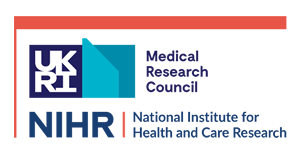Research into how social care interventions work
The EME programme invites applications to investigate how social care interventions work, within existing and separately funded studies.
Scope
Proposals will be accepted across a wide range of social care interventions, including but not limited to:
- Interventions that support daily or independent living and/or reduce the use of social care services e.g., personal care, home help, housing adaptations;
- Interventions that support childcare, adoption, fostering, health visitors, safeguarding and child protection;
- Housing interventions e.g., homelessness, housing help for people who draw on social care;
- Prison and probation interventions for people who draw on social care;
- Social prescribing in a non-healthcare setting;
- Interventions looking at disjointed care, unmet needs, equity of access, financial inclusion in social care;
- Community based support for children, adolescents and adults with social care needs e.g., youth and community work.
Research should aim to correlate knowledge, attitudes, and behaviours to explain why the intervention does or doesn’t have the expected effect, who the intervention works for and under what circumstances. Research must therefore build on a primary research study which evaluates the effectiveness of the social care intervention by testing hypotheses as to how social care interventions work. This may include the evaluation of interview data, resource utilisation, biological specimens or process evaluation.
Applicants will need to make a strong case for how a better understanding of the mechanisms of action will potentially contribute to the future use or development of social care interventions, help to inform those who commission these services, and for the ultimate benefit of people who use social care services.
For this call, the EME Programme is particularly interested in receiving applications from interdisciplinary teams combining expertise in mechanistic research and social care research.
Examples of Mechanistic work funded by EME can be found on the Funding and Awards website, for example:
- 14/202/03 Identifying and understanding mechanisms of action in group-based health behaviour change interventions;
- NIHR130967 Mechanisms of change underlying increased intelligibility for children with cerebral palsy following speech and language therapy focusing on breath support and speech rate.
Eligibility
Applications should be hypothesis-testing, relevant to the intervention and outcomes proposed by the original study. Studies should aim to add significantly to the scientific understanding of the mechanisms of action of the intervention, the causes of differing responses, or promote an understanding of any potential limitations and how these could be reduced.
For this call, studies must utilise study participants and data or samples from identifiable cohorts and must not involve recruitment of new study participants. The proposed research may involve the analysis or reanalysis of previously stored specimens or data, or the collection of new specimens or new data for additional analysis, provided it is obtained from the study participants. These must be from:
- Current or completed NIHR-funded projects from the following programmes: i4i, EME (including the MRC/NIHR transferred portfolio), HSDR, HTA, PHR, RfPB (including RfSC) and PGfAR or equivalent funding from the Devolved Administrations
OR
- Non-NIHR funded projects and projects not funded by the above NIHR programmes. All projects must have been through an external review process and we may request evidence of this. Examples include projects funded by the UKRI, Wellcome and major charities. The remit would also include NIHR/MRC/Wellcome or equivalent fellowships, provided the sample sizes are sufficiently large. Alternatively, samples or data from fellowships could be incorporated into a larger pool.
Applicants must provide evidence of data sharing agreements with the owner(s) of any data required for the proposed mechanistic study or agreement from the chief investigator of the original study if it was NIHR-funded. If the original chief investigator is not the chief investigator or a co-applicant on the mechanistic study, then permission must be obtained before applying and a supporting letter will be required at Stage 2. Where a (non-NIHR) study is ongoing, the chief investigator must supply a written letter from the funder confirming the following:
- The study is recruiting to target;
- Funding is available for completion;
- The inclusion of the proposed mechanistic study is not expected to impact chances of main trial completing.
Applicants will need to make a strong case for how a better understanding of the mechanisms of action will potentially contribute to the future use or development of the intervention, future wealth creation and for the ultimate benefit of social care recipients and the social care system.
Applicants are asked to please provide details on:
- The project number, title, funding programme and award dates of the study providing the participants/data/samples;
- The well-defined hypothesis/hypotheses being tested. All applications must be hypothesis-driven, i.e., funding will not be available for hypothesis-generating studies;
- How this will contribute to improved understanding of the original social care intervention;
- What impact the results of the study are likely to have on users of social care;
- Applicants should clearly state how their proposed research addresses an explicit evidence gap and how the research adds value to the existing NIHR research portfolio.
Typically applications to this call will be no more than £350,000; however, there is no formal upper or lower limit. For all applications value for money is the key consideration.
To support applications to this call:
- A question and answer webinar will be held on 12 September 2022 from 13.00 to 14.00. To sign up, please fill out the form on the call page.
- Teams may contact the EME Programme team as eme@nihr.ac.uk, to discuss whether their proposal is likely to be within remit.
- Additional subject matter expertise will support funding committee decisions.


